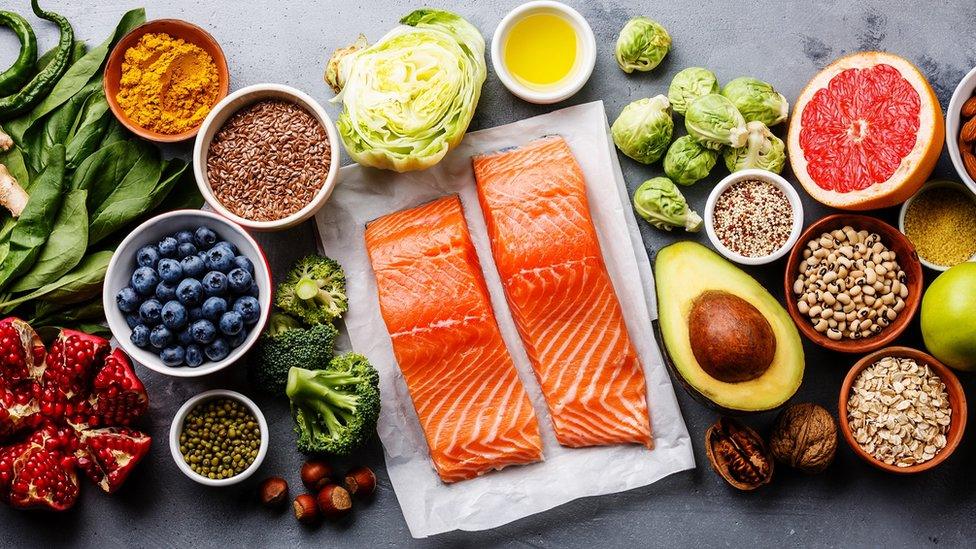Brexit: Can Irish Sea border ‘teething problems’ be solved?
- Published
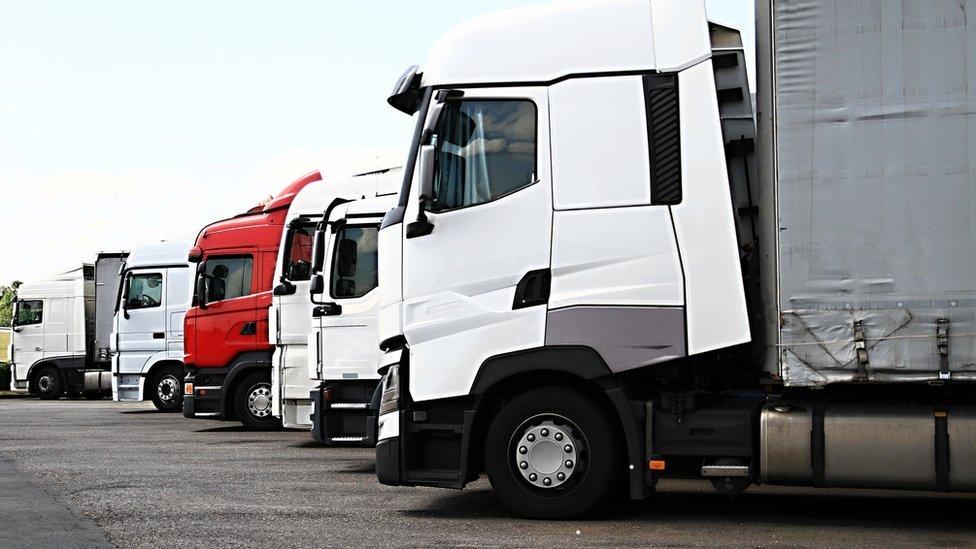
As Joe Biden was being inaugurated on Wednesday members, of the UK's shadow cabinet were hosting a less happy gathering.
Rachel Reeves, the shadow cabinet office minister, was chairing a meeting of Northern Ireland haulage firms.
Each of them had a story about the difficulties they are facing with the new Irish Sea border.
Since New Year's Eve, getting goods across that border has involved a range of new processes and documentation.
The first speaker was Chris Slowey, managing director of Manfreight.
He told of underprepared customers, inexperienced customs agents and clunky systems.
Mr Slowey moves goods for major global brands and said they have a dim view of what is happening.
"Those global brands believe Northern Ireland and Ireland are bad places to do business at the moment because of the additional costs."
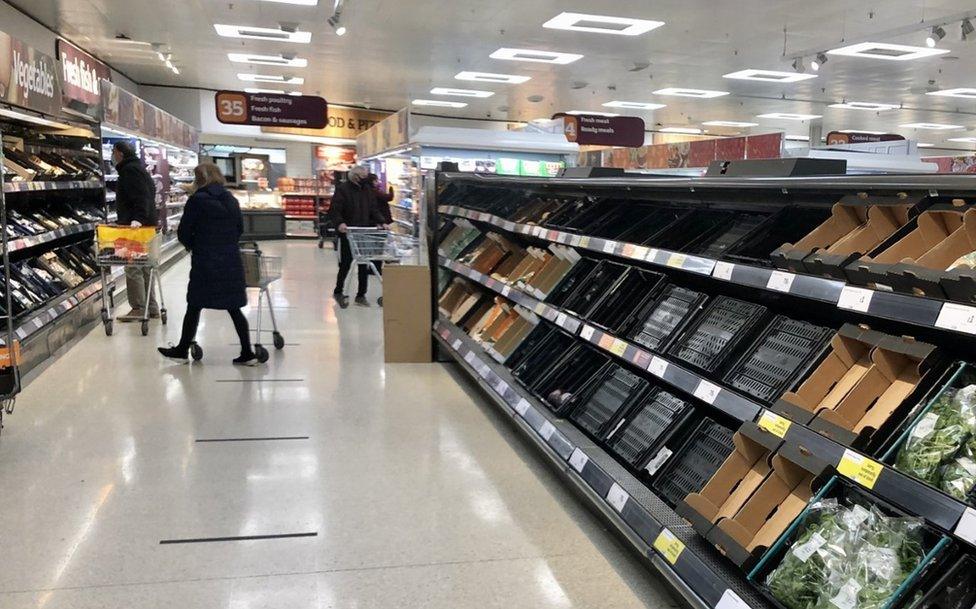
Haulage firms say consumers can expect higher prices and less choice at the supermarket
He said that while Northern Ireland's supermarkets are still well stocked, in future consumers can expect higher prices and reduced choice.
Earlier Mr Slowey told politicians at Stormont that he was going to have to put up his prices.
The major reason was that while he had full loads going out of Northern Ireland, many of his trailers were coming back empty, as some GB firms have reduced their trade into NI.
"We have done our figures for the first 20 days of January and we're going to have to go to our customer base and ask them for a 12% rise on the current rate structure," he said.
Commercially sustainable?
Haulage firms are clamouring for financial help, grace periods and easements which they say are needed to make the new border arrangements commercially sustainable.
They are not the only ones.
In the last week, a major UK health food firm warned that shipping organic food from GB to Ireland is now "virtually impossible at scale".
The horticulture industry said that new plant health processes required as a result of the sea border were causing "incredible frustration".
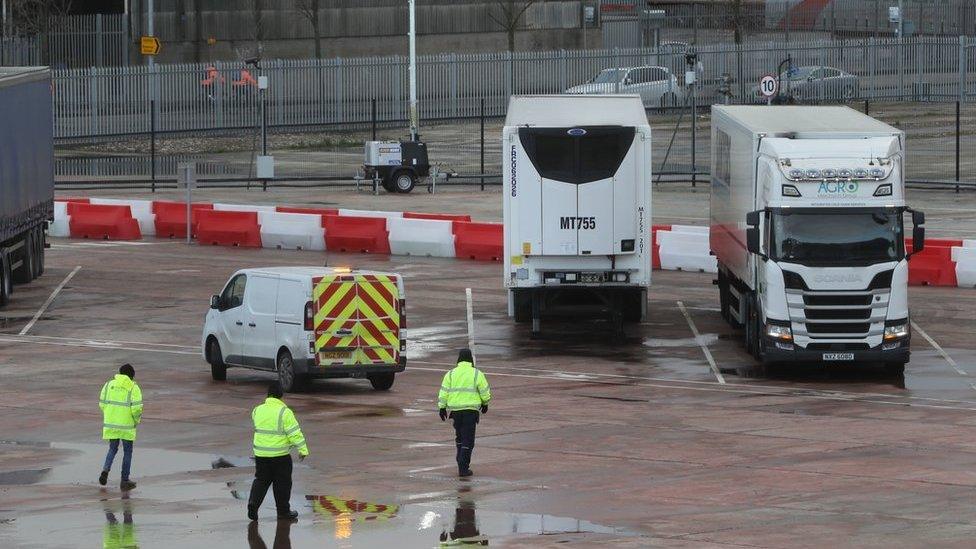
Customs checks are carried out at ports in Northern Ireland as a result of new trade rules
The standard response of the UK government has been that trade is mostly flowing normally from GB to NI and that teething problems can be overcome.
And it is the case that some difficulties have been solved.
This week HMRC was able to remedy an anomaly that meant NI businesses importing steel were facing tariffs of 25%.
Problems with the transport of mixed loads of food, known as groupage, are also being tackled with a successful test run from Liverpool to Belfast last week.
A VAT issue for the second-hand car trade has also been resolved.
But UK ministers and officials know there is more to do.
More effort is now being directed at educating GB businesses, many of which have been woefully underprepared for the new trade rules with NI.
There is also work looking at what more can be done to help hauliers, but the government is very wary of raising expectations.
The new EU-UK joint bodies which are managing the deal should begin their work in earnest next month.
It is possible that they can find easements for some of the trickiest customs issues relating to Northern Ireland goods moving in and out of Dublin port.
The government is also pointing to some signs of confidence in parts of the Northern Ireland economy.
Two major manufacturers, Wrightbus and Terex, announced job creation plans this week.
Friction
One of the potential upsides of Northern Ireland's Brexit deal is that, unlike other parts of the UK, manufacturers will retain frictionless access to the EU's single market.
The inward investment agency Invest NI is already quietly talking about this but the message may be more forcefully pushed later this year.
But frictionless trade from GB to NI is not coming back.
There are no more set-piece negotiations which will allow that to happen.
That is likely to lead to changes in patterns of trade with businesses seeking out new suppliers in the Republic of Ireland or the wider EU.
That was emphasised to me by Steve Tomkins, one of the GB organic food wholesalers who is now having difficulties selling to NI.
He said: "Were I based in Dublin I would be making every effort to establish a market in the north."
Related topics
- Published22 January 2021
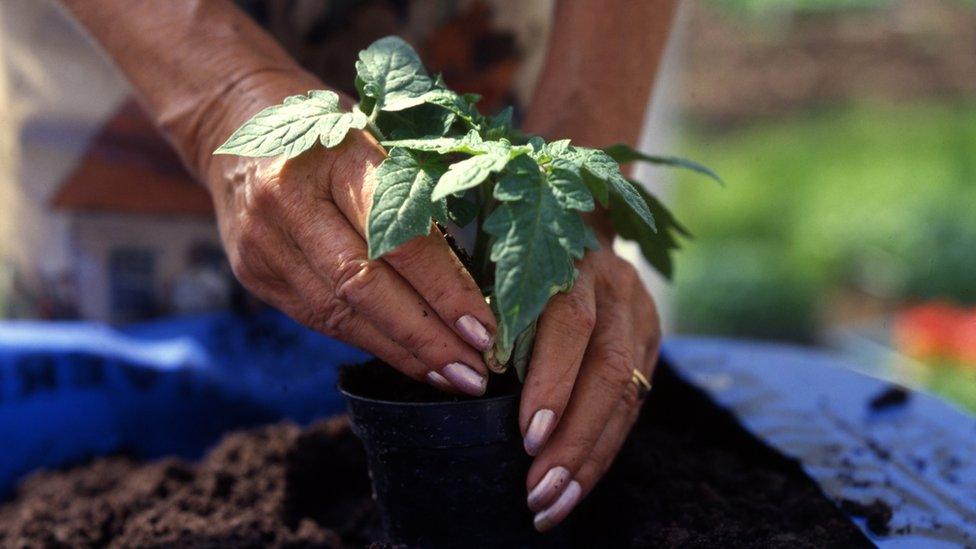
- Published22 January 2021
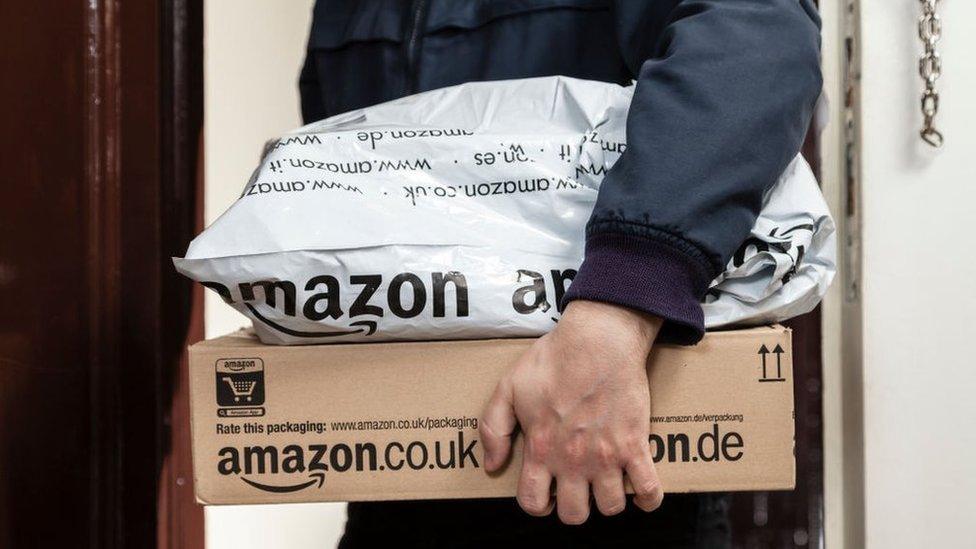
- Published20 January 2021
